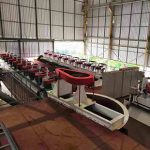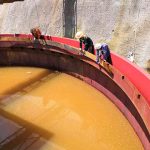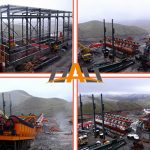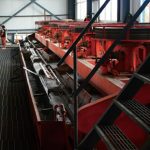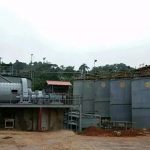Analysis of the influence of grinding process on flotation efficiency
There are many kinds of technology in modern mine processing, among which flotation technology is more common. Flotation technology belongs to chemical mineral processing technology.
The principle of flotation process is as follows.
After grinding, the ore becomes pulp and enters the flotation equipment. At this time, the corresponding flotation reagent is added to the pulp. By utilizing the hydrophobicity difference between the surface of the ore particles and the hydrophobicity difference under the action of the flotation reagent, the flotable ore particles selectively adhere to the bubbles and rise to the bubble layer. After scraping out, the concentrate is dehydrated.
In the flotation process, there are many uncertain factors, such as grinding size, pulp concentration, sludge content in the pulp, pulp stirring uniformity, flotation time, temperature, dosage of reagents and so on. Their changes will affect the flotation efficiency. As the preparatory stage of flotation, grinding technology has great significance to the effect of flotation. Flotation technology has corresponding requirements for mineral particles, too coarse or too fine mineral particles will affect the flotation effect. Over-coarsening generally means that the particle size is greater than 0.1 mm and over-fine is less than 0.006 mm. Because grinding operation is a relatively high cost part of the whole mineral processing process, many concentrators choose coarse grinding ore. In order to ensure the recovery rate of roughing, the range of coarse grinding particle size will mostly be broadened, but when flotation of coarse particles, the quality of ore particles is larger and easy to fall off. When the size of ore is too large, the solutions include increasing the use of collectors, increasing the volume of pulp aeration, properly increasing the strength of pulp mixing, properly increasing the pulp concentration, and balancing the scraper rate. Increasing the use of collectors means adding some auxiliary collectors, such as kerosene and diesel oil, to increase the adhesion and solid force between mineral particles and bubbles. With the increase of pulp aeration, larger bubbles and bubbles of different sizes can be formed, which have larger buoyancy and can carry coarse particles up. Scraping bubbles should be gentle so that bubbles can be scraped out in time to prevent pellets from falling off. For very fine mineral particles, because their size is usually between 5 and 10 microns, the slime quality is too small, easy to adhere to the surface of coarse grains, and difficult to separate. As the surface area of ore particles increases, it will absorb too many chemicals, reduce flotation indicators, and increase surface activity, resulting in too stable foam, resulting in the difficulty of selection. At this time, measures can be taken, including the use of flocculants, the use of flotation carriers, agglomeration flotation and so on. The purpose of using flocculants is to flocculate the target mineral particles so as to facilitate separation. Flotation carriers and flocculants have the same effect. They can use similar or heterogeneous minerals as carriers to adsorb over-fine minerals, such as fine iron and titanium in calcite-supported kaolin. In addition, neutral oil can be used to emulsify the slurry and simplify the separation of fine particles. It can be used for flotation of fine manganese, ferrotitanium and apatite. In addition to the effect of grinding particle size on flotation, slurry is easy to produce in the grinding process. The excessive slime will cause the reduction of concentrate grade, affect the flotation of coarse particles, consume flotation reagents, damage the aeration conditions, etc. The most common solution is to use cyclone for slurry desliming. If the slurry is easy to float, foaming agent can be added to separate treatment before flotation to make the slurry come out. In addition, other measures can be taken to solve the sludge in the pulp, such as increasing the pulp dilution, adding dispersant, adding drugs in stages and batches, in order to reduce the impact of the sludge on the flotation process. Different ores need different grinding sizes. In order to facilitate better flotation recovery, beneficiation tests on ore samples based on flotation principles before the design and construction of the plant can effectively reduce the impact of grinding on flotation and reduce unnecessary losses in subsequent work.
About Us
Qixia Dali Mining Machinery Co., Ltd was established in 1998, located in Yantai City.
The company is mainly engaged in the design, development, production, installation and training of underground mine equipment and ore processing equipment, spare parts supply and sales.
MoreContact Us
- Xinbang Rd, Private Economy Park, Qixia, Shandong Province, China
- +86 173 5350 8179
- ytdali@ytdali.com
 +86 13553073459
+86 13553073459
+86 13553073459
+86 13553073459
